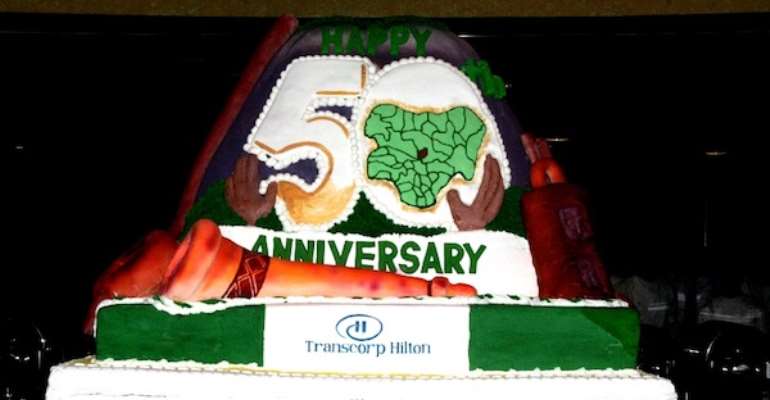Nigerians Dying From Poverty - SERAP

ABUJA, Oct 03, (THEWILL) - As Nigeria mark 50 years of independence, a civil society group Socio-Economic Rights & Accountability Project (SERAP) has expressed concern over the huge amount of money expended on the celebration of the golden jubilee.
The group lamented that, "The extravagant celebration of the country’s fifty years of independence is diverting attention away from the reality that extreme poverty ‘kills’ tens of thousands of Nigerians yearly, and our government seems helpless to do anything about it."
In a public statement dated 1 October 2010, and signed by SERAP Executive Director Adetokunbo Mumuni, the organization said that, "Nigeria is characterised by lack of development in all spheres of economic, social and cultural life. A culture and legacy of official corruption has produced a legacy of extreme poverty and inequality in the country."
According to the group, "The struggle for independence from colonization was widely applauded by Nigerians who expected that political independence for the country would make it possible for their leaders to utilise the country’s enormous natural resources for their prosperity and development. But fifty years after, over 70 millions Nigerians remain poor, and without access to basic necessities of life, such as healthcare, adequate shelter and clean water.
"They survive on less than $1 a day, and go to bed hungry. Life expectancy for those living in poverty is shorter than what is seen in many other African countries. Millions of children do not attend primary school. In addition to a low enrolment rate, there is appalling one in three chance that a child in the country will complete primary school, with girls disproportionately affected. Tens of thousands of children die everyday of preventable illnesses while the same number of women die in pregnancy and childbirth," the group said.
According to the group, "While statistics alone may not provide a complete understanding of poverty, these figures offer evidence of massive and direct denials of the internationally recognized economic and social rights.
"Extreme poverty is killing Nigerians slowly, denying them the rights to personal security, dignity, equality of opportunity and freedom from discrimination. Poverty is stripping them any real opportunity to exercise their human rights and take on responsibilities," the group further stated.
"This situation requires far-reaching positive and redistributive measures in areas such as education, housing, health care, water reform and social security. Without such measures the socio-economic legacy of the past fifty years will continue to be perpetuated and continue to generate classes of people marginalised from full participation in our fragile democracy," the group added.
"Nigeria may have to wait until 2147 to reach the Goals for poverty, contrary to the UN Millennium Declaration’s vision and the Millennium Development Goals."
The group therefore urged President Jonathan to "urgently work with the National Assembly to ensure the inclusion in the Constitution of legally enforceable human rights such as environmental rights; the right to housing, to health care, to food, to water and to social security; the right of every child to basic nutrition, and shelter".
